Geng Yu
Wide-In, Narrow-Out: Revokable Decoding for Efficient and Effective DLLMs
Jul 24, 2025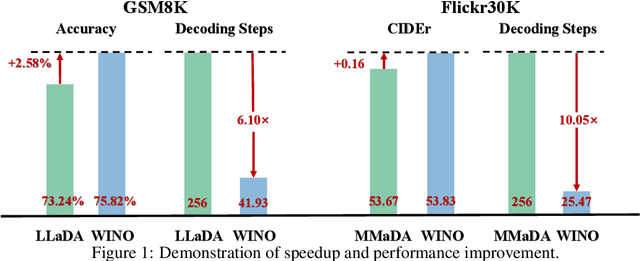
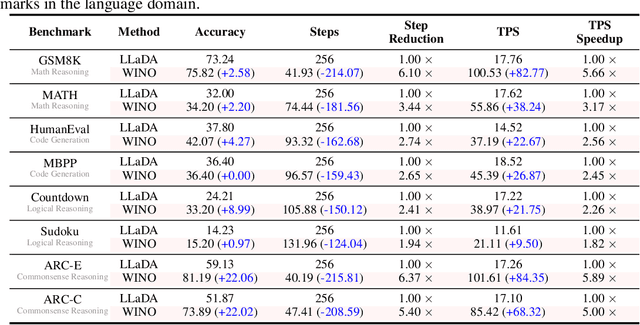
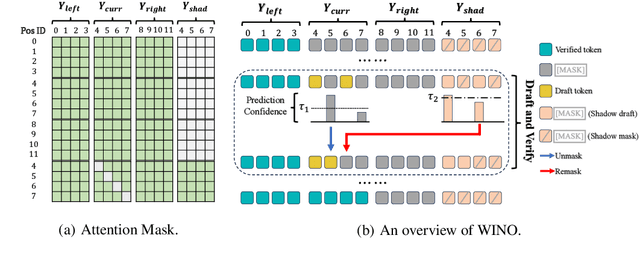
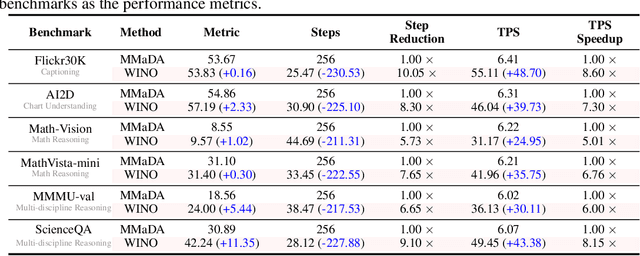
Abstract:Diffusion Large Language Models (DLLMs) have emerged as a compelling alternative to Autoregressive models, designed for fast parallel generation. However, existing DLLMs are plagued by a severe quality-speed trade-off, where faster parallel decoding leads to significant performance degradation. We attribute this to the irreversibility of standard decoding in DLLMs, which is easily polarized into the wrong decoding direction along with early error context accumulation. To resolve this, we introduce Wide-In, Narrow-Out (WINO), a training-free decoding algorithm that enables revokable decoding in DLLMs. WINO employs a parallel draft-and-verify mechanism, aggressively drafting multiple tokens while simultaneously using the model's bidirectional context to verify and re-mask suspicious ones for refinement. Verified in open-source DLLMs like LLaDA and MMaDA, WINO is shown to decisively improve the quality-speed trade-off. For instance, on the GSM8K math benchmark, it accelerates inference by 6$\times$ while improving accuracy by 2.58%; on Flickr30K captioning, it achieves a 10$\times$ speedup with higher performance. More comprehensive experiments are conducted to demonstrate the superiority and provide an in-depth understanding of WINO.
Self-Calibrated Tuning of Vision-Language Models for Out-of-Distribution Detection
Nov 05, 2024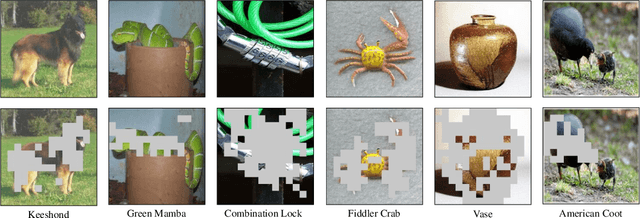
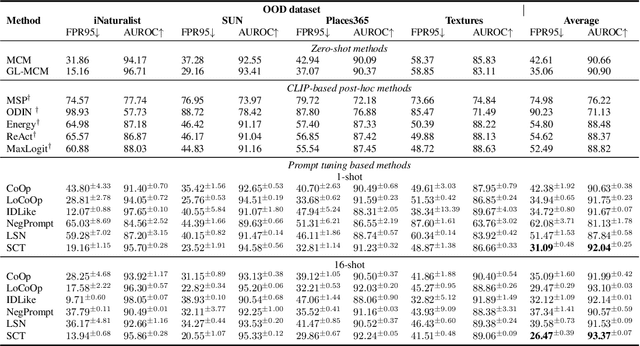
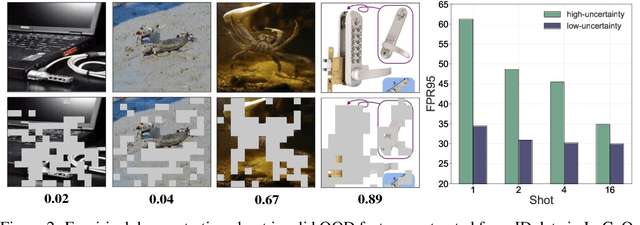
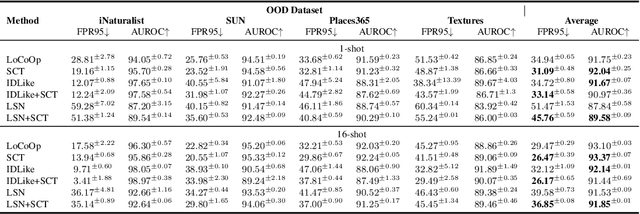
Abstract:Out-of-distribution (OOD) detection is crucial for deploying reliable machine learning models in open-world applications. Recent advances in CLIP-based OOD detection have shown promising results via regularizing prompt tuning with OOD features extracted from ID data. However, the irrelevant context mined from ID data can be spurious due to the inaccurate foreground-background decomposition, thus limiting the OOD detection performance. In this work, we propose a novel framework, namely, Self-Calibrated Tuning (SCT), to mitigate this problem for effective OOD detection with only the given few-shot ID data. Specifically, SCT introduces modulating factors respectively on the two components of the original learning objective. It adaptively directs the optimization process between the two tasks during training on data with different prediction uncertainty to calibrate the influence of OOD regularization, which is compatible with many prompt tuning based OOD detection methods. Extensive experiments and analyses have been conducted to characterize and demonstrate the effectiveness of the proposed SCT. The code is publicly available.
Diversified Outlier Exposure for Out-of-Distribution Detection via Informative Extrapolation
Oct 26, 2023
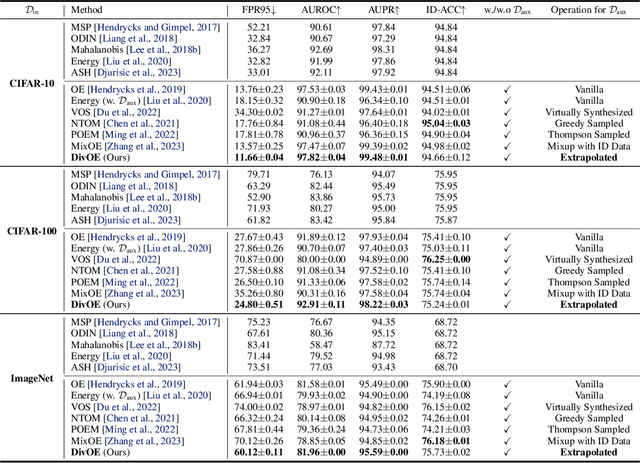


Abstract:Out-of-distribution (OOD) detection is important for deploying reliable machine learning models on real-world applications. Recent advances in outlier exposure have shown promising results on OOD detection via fine-tuning model with informatively sampled auxiliary outliers. However, previous methods assume that the collected outliers can be sufficiently large and representative to cover the boundary between ID and OOD data, which might be impractical and challenging. In this work, we propose a novel framework, namely, Diversified Outlier Exposure (DivOE), for effective OOD detection via informative extrapolation based on the given auxiliary outliers. Specifically, DivOE introduces a new learning objective, which diversifies the auxiliary distribution by explicitly synthesizing more informative outliers for extrapolation during training. It leverages a multi-step optimization method to generate novel outliers beyond the original ones, which is compatible with many variants of outlier exposure. Extensive experiments and analyses have been conducted to characterize and demonstrate the effectiveness of the proposed DivOE. The code is publicly available at: https://github.com/tmlr-group/DivOE.
 Add to Chrome
Add to Chrome Add to Firefox
Add to Firefox Add to Edge
Add to Edge